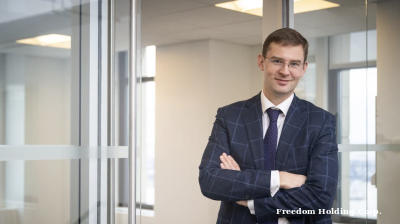The coronavirus (COVID-19) pandemic, which caused a several-week long lockdown period in Russia, gave a boost to the country's digital retail industry as people stepped up online shopping.
At the beginning of the lockdown period, consumers were very cautious, but gradually sales took off, and for some product groups, the growth was significant, Alexei Chistyakov, deputy sales director of IT-Grad, which is part of MTS group, was quoted as saying by Kommersant business daily.
The e-commerce client base in Russia increased by 37% and 11%, or 17mn and 11mn people respectively, in April and May 2020 from 46mn clients in early 2020, VTB Capital (VTBC) reported on June 25.
According to Chistyakov, prior to the pandemic, Russians were less active in online shopping compared with residents of other countries, such as China.
"[In China], even before the coronavirus pandemic, about 75% of internet users shopped online, and therefore, there was no spike in online sales [due to the coronavirus]," he said. "In Russia, as we've seen, the situation is different."
Stocking up on food
Predictably, the lockdown period, introduced in Russia in late March, prompted many people to stay indoors and order food online.
"We weren't ready for a substantial increase in demand even though we had been preparing for a lockdown, considering various scenarios, from a loose one to a hard one," added Arina Avanesova, head of the project office of the online branch of major food retailer Perekrestok.
She added that the average purchase in the online supermarket has remained higher than it was before the lockdown and the online retailer was able to make adjustment to its business model to accommodate the increased demand.
"In May and June, demand stabilized, but it remains higher than in the same periods of last year," she concluded. "We also sped up the process of hiring new employees, including those from the industries that were hit most hard by the coronavirus."
According to Yevgeny Mishchenko, head of the e-commerce division at Metro retailer, at peak period during the lockdown, the number of orders was several times higher than at the beginning of the year.
Non-food retail
Meanwhile, not just food retailers but also clothing companies saw a surge in online purchases during the lockdown.
Clothing retailer Tom Tailor has seen a 45% year-on-year increase in sales, noted the company's general director for Russia and CIS Sergei Kondakov, adding that although brick-and-mortar stores have reopened, online sales continue to grow.
An increase in online sales apparently pushed the company to rethink its customer service approaches.
While earlier the company focused on service quality during face-to-face interactions at physical stores, now the focus is shifting to buyers who use various channels.
"These new trends have arrived as fast as the lightning," he concluded.
Online pharmacies have also benefited from the lockdown, attracting customers who previously opted for physical pharmacies.
According to findings of a survey commissioned by pharmaceutical company Stada, 12% of Russians made their first purchase in an online pharmacy during the lockdown.
Erkapharm group, which runs several pharmacy chains, such as Doktor Stoletov, Ozerki and Raduga, reported a 40% y/y increase in online sales in April, even though only pick-up orders could be implemented until late May.
On May 27, Russia's health watchdog Roszdravnadzor allowed delivery of online orders from pharmacies, and Erkapharm says delivery orders already account for about 2% of all sales.
Uncertain prospects
Still, at this point, it's not clear how strong the online shopping trends triggered by the lockdown are going to be.
Online food retailers expect an increase in sales in the autumn, as it is normally the case, but the situation is less certain when it comes to other types of products.
"If we talk about electronics and clothes, the uncertainty level is much higher," Metro's Mishchenko was quoted as saying by Kommersant. "It's not even yet clear if schools will reopen on September 1."
-
 This article is part of bne IntelliNews coverage of technology, blockchain, fintech, cryptocurrencies and the new economy. Sign up for the free monthly newsletter bneTech here, or read more tech stories on the website here.
This article is part of bne IntelliNews coverage of technology, blockchain, fintech, cryptocurrencies and the new economy. Sign up for the free monthly newsletter bneTech here, or read more tech stories on the website here.
Read the latest issue of bneTech here
https://online.flipbuilder.com/myab/epqf/
Sign up for free here
https://to989.infusionsoft.com/app/form/sub-bnetech-sign-up
bne’s tech section online
http://www.intellinews.com/tech/
Tech

Saudi competition authority warns of artificial intelligence impact on pricing and fair competition
Saudi competition authority warns AI could facilitate anti-competitive practices including collusion and personalised pricing, working with SDAIA to embed fair competition principles in AI legislation.

Central Asia becomes launchpad for Freedom’s digital banking expansion
Group is bringing Kazakhstan's sophisticated banking technology to the wider region starting with Tajikistan and Georgia.

Romanian retailers warn of €2.1bn annual tax loss from non-EU online platforms
Study projects around 78mn low-value parcels will be shipped into Romania from companies like Shein and Temu in 2025.

Uzbek digital doyen Uzum secures $70mn equity financing led by Ten Cent and VR Capital, hits $1.5bn valuation
Company to accelerate development of proprietary fintech, broaden product suite.



